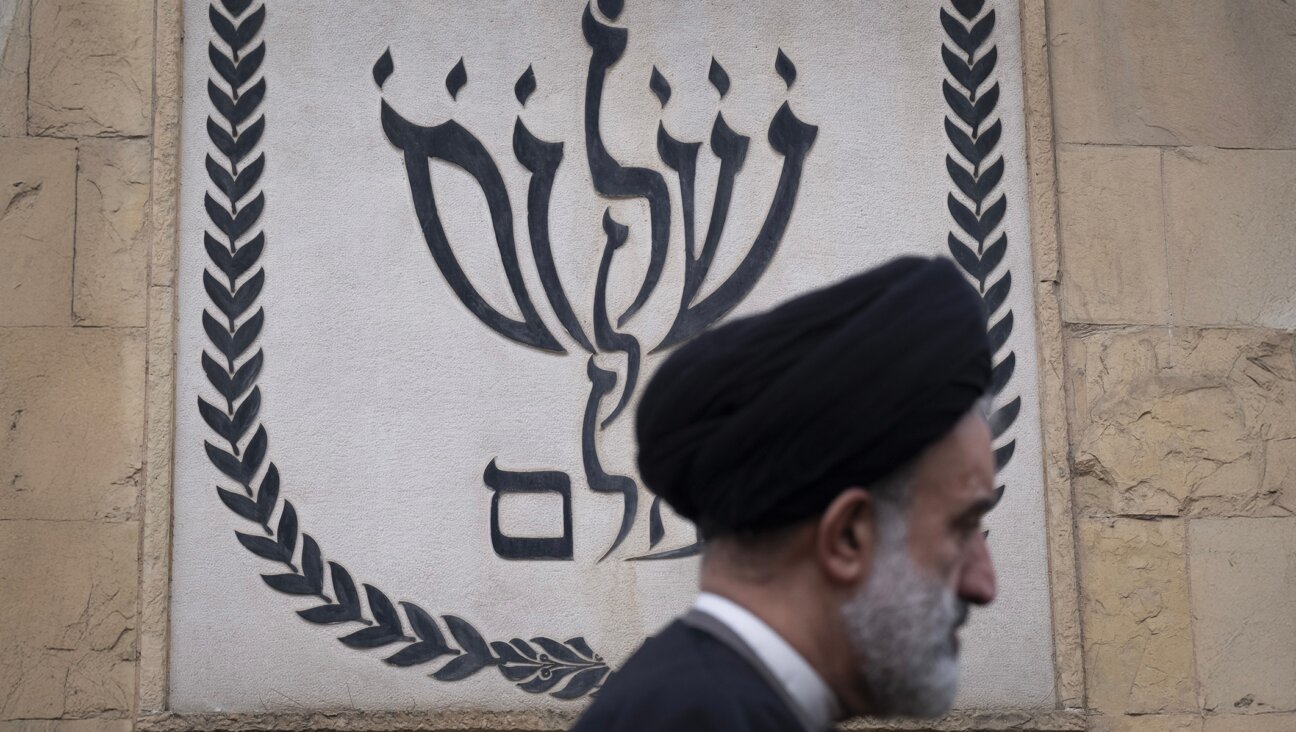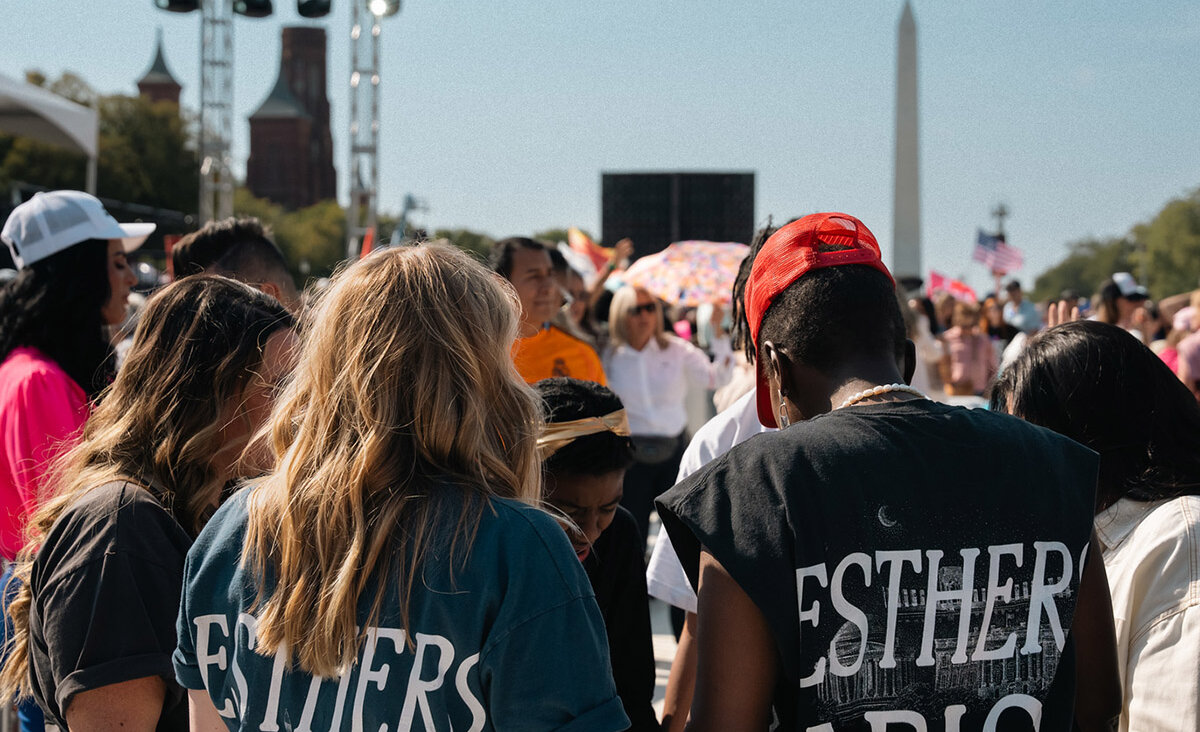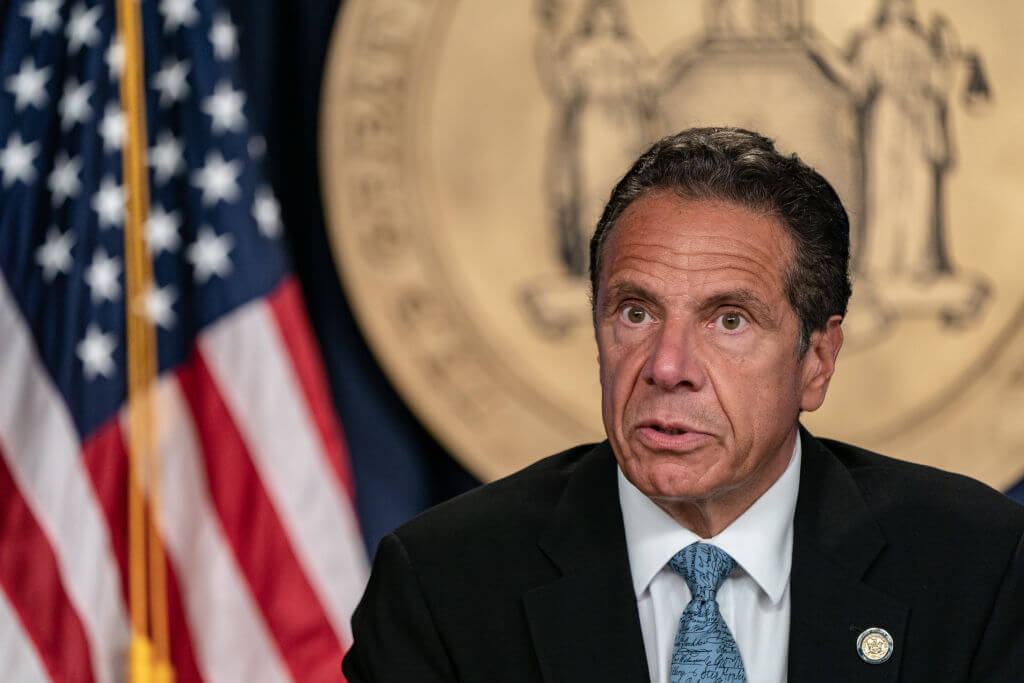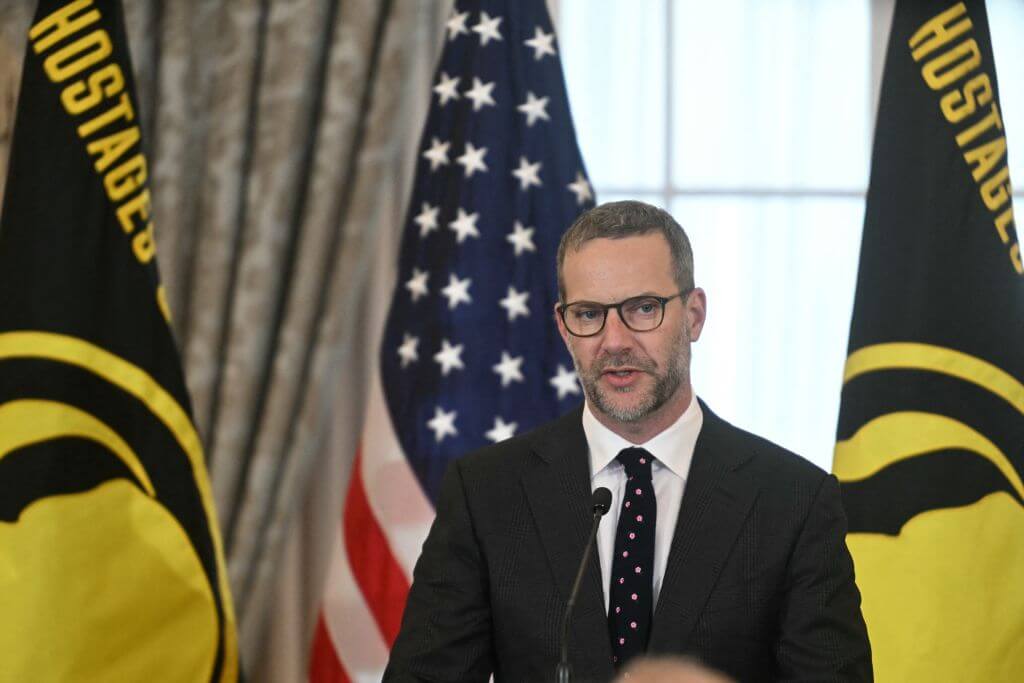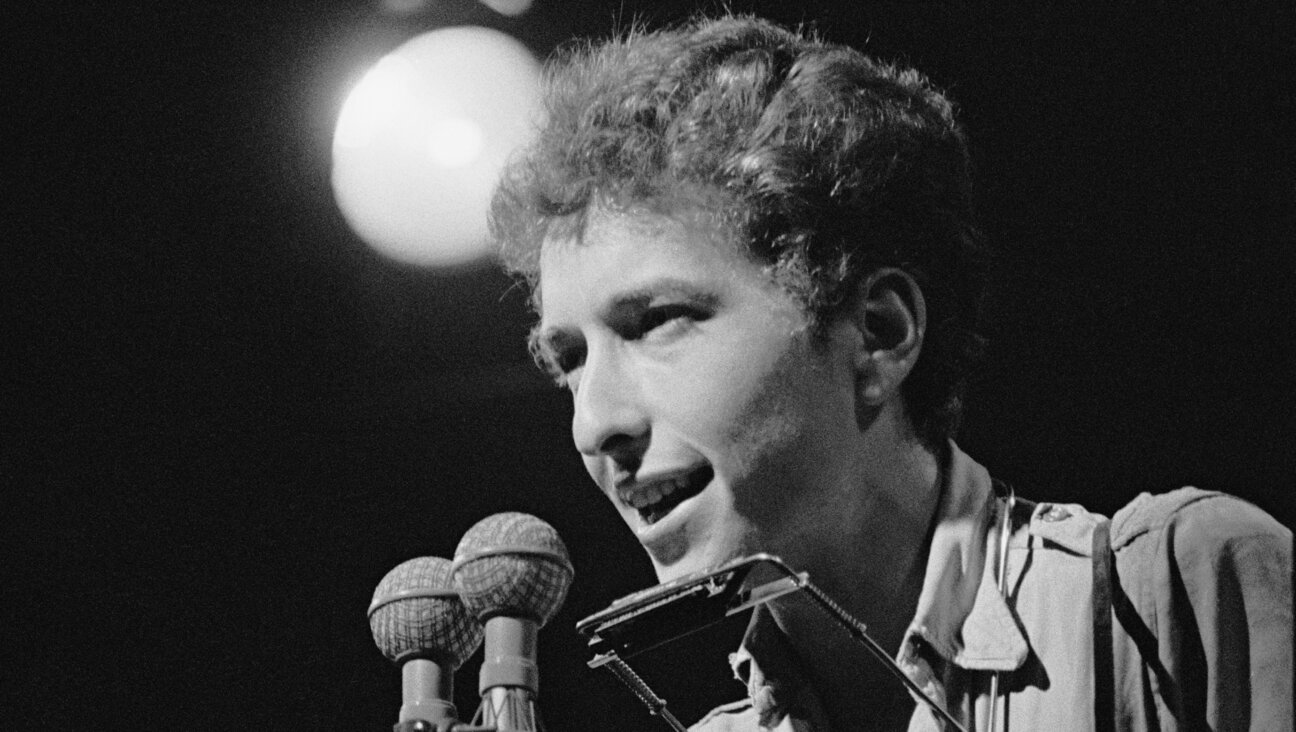UK’s new prime minister, Keir Starmer, observes Shabbat, supports Israel and vows to fight antisemitism
Starmer’s wife is Jewish, they’re raising their kids as Jews, and Friday night dinner is sacrosanct
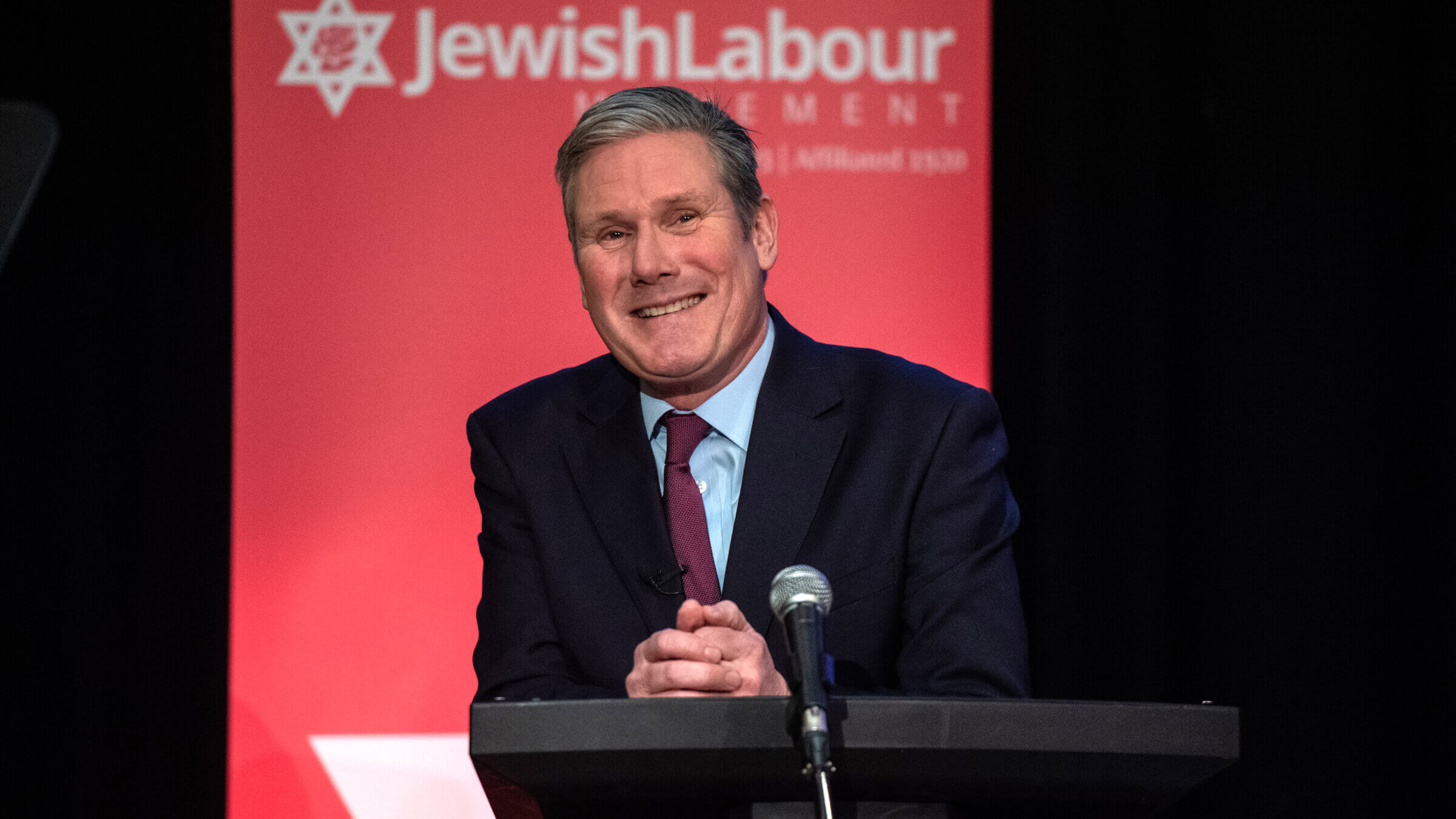
The United Kingdom’s new prime minister, Keir Starmer, spoke in January to the Jewish Labour Movement at a conference in London. Photo by Chris J Ratcliffe/Getty Images
For the first time ever, 10 Downing St., the official residence of the United Kingdom’s prime minister, will be home to a practicing Jewish family.
Keir Starmer, whose wife is Jewish, was sworn in Friday by King Charles III after the Labour Party won in a landslide. Though Starmer himself is not Jewish, his children are being raised Jewish and he says the family will continue to gather for Shabbat dinners while he is running the country.
Starmer has also been a strong supporter of Israel and pledges to fight the surge in antisemitism that’s plaguing the United Kingdom.
Who is his wife, Victoria Alexander Starmer?

Victoria Starmer is a former solicitor, the British term for a lawyer, who now works for the National Health Service. Her father was born to a Polish Jewish family that arrived in England before World War II. Her late mother converted to Judaism.
Friends call her “Lady Vic” but she’s intensely private and has avoided all press despite her husband’s political triumph. The Starmers are fanatical about maintaining their teenage children’s privacy, including keeping their names secret. Their son’s name, Toby, did get out, but their daughter’s has not been disclosed.
How observant are the Starmers?
Starmer has called Shabbat a “rock in the week,” describing Friday night dinners, with challah and kiddush, as “really nice and really special.”
The Starmers belong to the Liberal Jewish Synagogue in St Johns Wood, in London, which describes itself as an “inclusive, diverse and egalitarian community” committed to social justice and welcoming of non-Jewish partners.
They’re raising their kids “to recognize the faith of part of their grandfather’s family,” Starmer said. “Just carving out that tradition, that bit of faith on Friday is incredibly important.”
He’s said in the past that he avoids Friday night events so he can spend the evening at home, which drew criticism from the outgoing Conservative prime minister, Rishi Sunak, and from the Conservative Party.
“Keir Starmer has said he’d clock off work at 6 p.m. if he became Prime Minister,” the party posted on X. “You deserve better than a part-time Prime Minister.”
In response, Starmer said: “I would have thought to anybody it’s blindingly obvious that a Friday night is quite important in some religions and faiths.”
What has Starmer said about antisemitism?
Starmer made fighting antisemitism part of his platform, and he’s criticized former Labour leader Jeremy Corbyn for Corbyn’s positions.
Corbyn once referred to Hezbollah and Hamas as “friends,” though he later backtracked, and he has supported a boycott of Israel while downplaying the rise of antisemitism during his years heading the party from 2015 to 2020.
Starmer even briefly suspended Corbyn from the Labour Party after Corbyn dismissed a report that found Jewish Labour Party leaders had been mistreated.
“I can’t tell you how disappointed I was that morning and the response of Jeremy to the report,” Starmer said. “It fundamentally cuts across all of that work that I had put in trying to make sure that we could do the right thing by that report.” Starmer pledged “zero tolerance” for antisemitism in the party and said: “I think we can make up for lost ground.”
Where does Starmer stand on Israel?
Starmer has said that some of his wife’s family live in Israel, but “Thank God” none of them were directly affected by Hamas’ Oct. 7 attacks.
Shortly after Oct. 7, he said he felt a “deep sense of shock” at the rise in antisemitism in the U.K., adding: “We stand by Jewish communities here, and we stand by Israel internationally.” He also criticized the BBC for refusing to call Hamas terrorists.
On Oct. 11, he reiterated that “Israel has a right to defend herself and Hamas bears responsibility for the terrorist acts.”
More recently, he’s said that “the first and most fundamental thing is getting that ceasefire, ensuring we can get hostages out,” while underscoring his “steadfast” support for the country. “I will not try and bully Israel into making concessions that are not in its interests,” he said. “Israel deserves to live in peace and security.”
While Starmer said he opposes the notion of Israel annexing parts of the West Bank, he also opposes a boycott.
His stance has made his family a target for pro-Palestinian protesters. In April, a prosecutor said that Victoria Starmer was “intimidated and scared” after a demonstration “effectively forced her out of her own home.”
How did Starmer’s positions impact the Jewish vote in the election?
Pre-election polls predicted that 46% of British Jews would vote Labour, compared to 30% who would vote Conservative. That’s a change from the past. In 2019, only 11% of Jewish voters supported Labour, mainly because of statements made by Corbyn.
However, Labour also lost several seats to five pro-Palestinian independent candidates.
Is this the first time Jews have lived at 10 Downing Street?
It depends on whether you count Benjamin Disraeli, who served as a Conservative prime minister during the reign of Queen Victoria.
He was the son of Jews descended from Italian Sephardic families. But his father, Isaac D’Israeli, left his synagogue after a yearslong dispute and had his children baptized into the Church of England in 1817, when Disraeli was 12.
Jews were excluded from Parliament until 1858, so Disraeli’s conversion allowed him to pursue a political career: He was first elected to Parliament in 1837 and served as prime minister in 1868 and again in 1874 to 1880.
Disraeli repeatedly put forth a notion of Jews as a superior race. One scholar called him “an open philosemite” who “never forgot his origins.” But those origins were also mocked and criticized in the press, where he was called “Chief Rabbi Benjamin” and a “disgusting Jew” and portrayed with a caricatured nose.
A message from our Publisher & CEO Rachel Fishman Feddersen

I hope you appreciated this article. Before you go, I’d like to ask you to please support the Forward’s award-winning, nonprofit journalism so that we can be prepared for whatever news 2025 brings.
At a time when other newsrooms are closing or cutting back, the Forward has removed its paywall and invested additional resources to report on the ground from Israel and around the U.S. on the impact of the war, rising antisemitism and polarized discourse.
Readers like you make it all possible. Support our work by becoming a Forward Member and connect with our journalism and your community.
— Rachel Fishman Feddersen, Publisher and CEO









